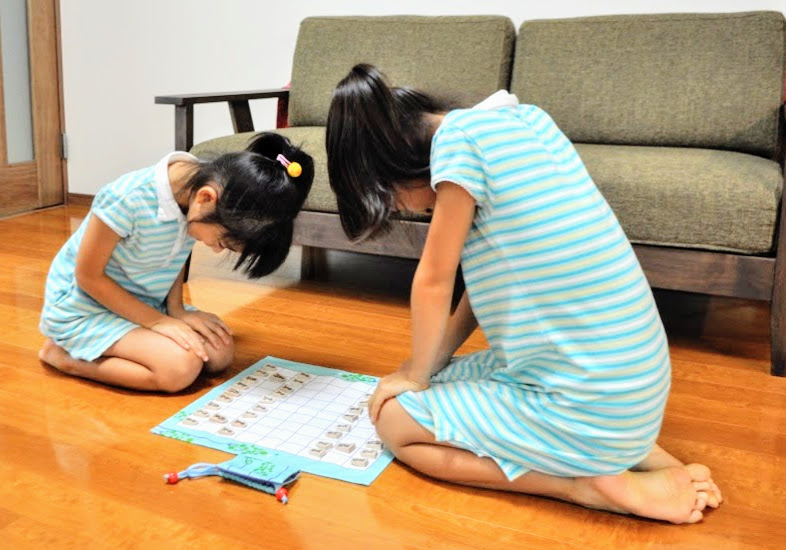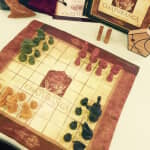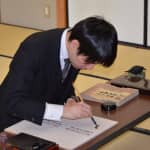Shogi 20 January 2017
Let’s Find Out Profound Japanese Greetings!
“Onegaishimasu” (I’d like to rely on you to play this game with me.)
“Makemashita” (I have lost.)
“Arigatou-gozaimasu” (Expressing one’s gratitude to the opponent for playing a game)
These are three courtesies in Shogi. We often talk about them on our blog.
The phrase of “Everything begins and ends with bowing” is applicable not only to Shogi but also to every traditional Japanese culture, and represents beauty of it.
When we go to school or office in the morning, we say “Ohayou-gozaimasu” (Good morning), and “Sayounara”(Good-bye) when we leave. We also exchange greetings when we see neighbors on the way home.
Greeting is a part of courtesy.
Courtesy is very highly valued in the world of Shogi, and so are greetings. Many Shogi instructors said that they teach children greetings before Shogi techniques when we had interviews with them.
I did not really think about greetings when I was young, but now I realize that it feels very good to exchange greetings.
So, today, we would like to talk about Japanese greetings.

“Arigatou-gozaimasu”
Nobody feels bad to hear this phrase. This is the best among many greetings we receive.
“Arigatou-gozaimasu” literally means that it is rare to exist or occur. In short, “Arigatou-gozaimasu” indicates that I appreciate that you let me experience a rare and happy event. It is such a wonderful greeting.
“Konnichiwa”
This is a very frequently used greeting. Chinese characters for this phrase indicated the sun originally. In some regions, people still call the sun “Konnichi-san,” and this expression was also used in a famous Japanese novel, “Bocchan” written by Soseki Natsume. “Konnichiwa” was once used as a greeting to the sun since people in old days believed that they lived under the mercy of the sun, and people greeted each other to confirm if they spent a good day under the sun.
“Sayounara” (Good-bye)
I think the origin of this greeting is not well known to our surprise. Chinese characters for this expression literally mean “if so.” The full version of “Sayounara” is “Sayounara Gokigenyou,” and “Gokigenyou” means “Stay healthy” or “Have a good day”. Just like “Konnichiwa,” the origin of “Sayounara” is related to the sun.
People’s conversation goes as below.
“Konnichiwa (Do you spend a good day under the sun?)”
“Hai (Yes, I do.)”
“Sayounara. Gokigenyou (If so, I am sure you stay healthy.)”
“Itadakimasu”
We say “Itadakimasu” before we eat. Basically, this expression is said to be a humble form of “nomu (drink)” and “taberu (eat),” and “masu, ” a polite form indicator is added at the end. I selected this expression for today’s article since it is full of gratitude. I personally think that we should feel something more than just a literal meaning of this expression when we use this.
When we use this phrase “Itadakimasu,” I think we add gratitude toward people who prepare the food such as our parents, farmers and food itself in this expression.
I think we say greeting phrases without paying much attention.
However, I encourage you to think about unstated but profound meanings embedded in the expressions if you have a chance. I am sure that you find fresh and new aspects in ordinary Japanese daily greetings.
Reference: “Nihon no Kokoro no Kyoiku” (Education of Heart of Japan) written by Katsunori Sakaino, Chichi Publishing Co., Ltd. Publisher: Hideaki Fujio



